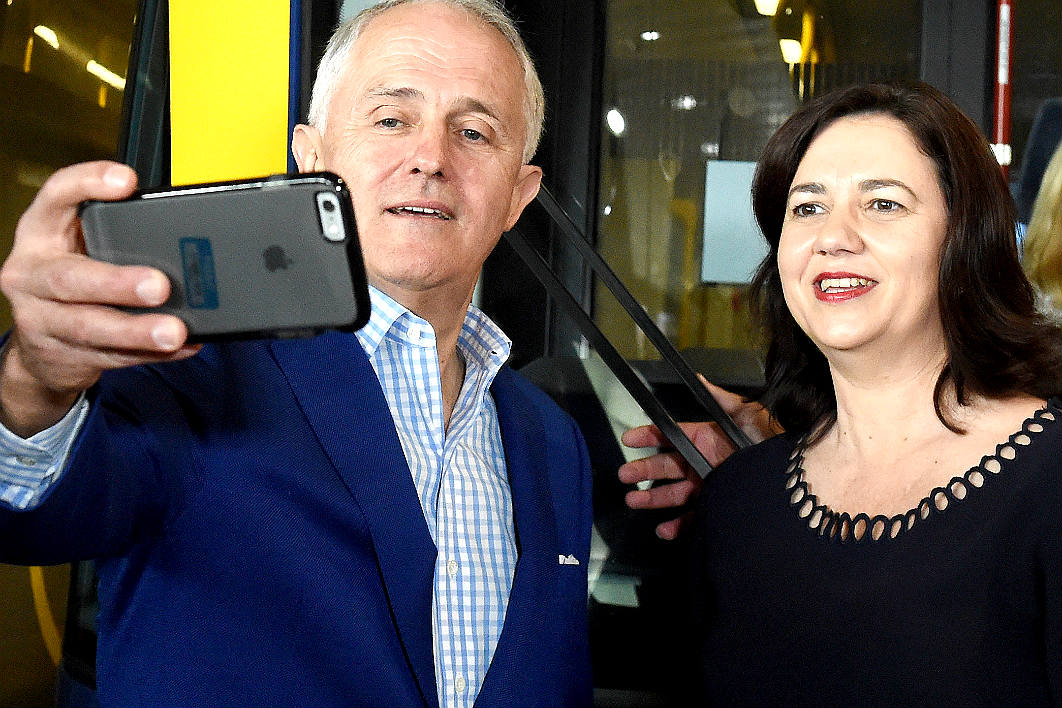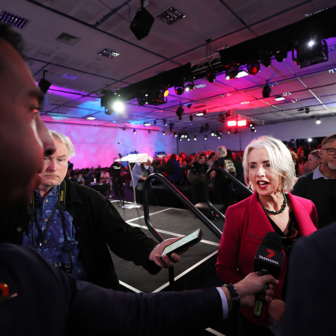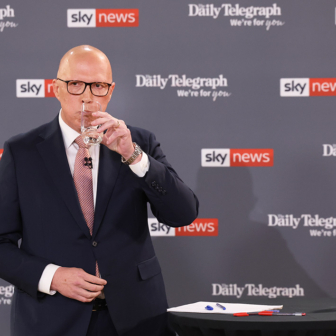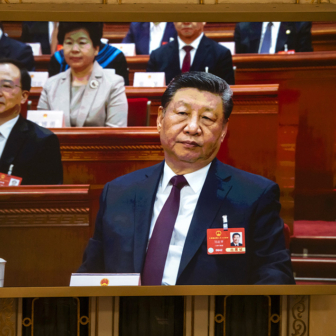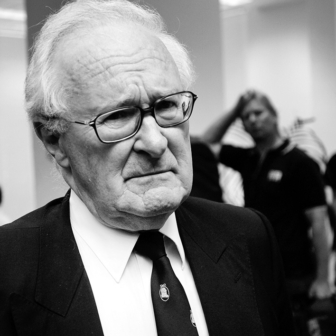Temperatures climbed beyond 30 degrees in southeast Queensland over the weekend. Humidity soared above 70 per cent. Mother Nature scowled, and the clouds brought a lightning-filled deluge on Sunday night.
In the midst of this tumult, Premier Palaszczuk visited her grandmother (and duly tweeted) and then, with media arrayed, called at Government House with news that an early election would be held on 25 November. No, Grandparents Day is not a big thing up north. But the Crown still is. One wonders what its representatives felt about a premier leaking her election decision to a Sunday tabloid before advising the governor.
Unlike the weather, this election promises to be anything but hot. Queensland politics have been rather subdued over the life of the Palaszczuk government: quite a contrast to the stormy days of the decline and fall of the Bligh government (victim to a 15 per cent swing) and the demise of the brief bulldozer that was the Newman government (stopped in its tracks by a 14 per cent swing). The one exception to a flat landscape of 50–50 polling across this term, and the one diversion from discussion of the merits of a “do-nothing” government, has been the recrudescence of One Nation in its ancestral home.
One reason for this quietude lies in the genetics of a government that lacked a gestation period. After the 2012 election, Labor had just seven seats: fewer than a Toyota Tarago, as the joke went. Entering the last election, that rump hardly dared to imagine it could win. But win it did, and entered office with little in the way of a positive agenda.
It did know what it didn’t want to be: a Newman-style bulldozer. The Liberal National Party, newly in opposition, understandably adopted a similar motto. But in pledging to neither raise taxes nor cut services, the government painted itself into a fiscal corner, limiting its ability to advance needed infrastructure. Even where it could have enacted progressive values costlessly, it tiptoed. A push to decriminalise abortion came to nought. Campaign finance reform was limited to real-time disclosure, and a promise to ban property developer donations has been washed away by the caretaker period.
One big issue — the Adani coal mine — has divided urbane electors and conservationists from regional workers and development interests. But even it has been, like a seam of coal itself, a slow burner. Adani’s inability to raise the necessary finance has ensured that.
Little wonder, then, that attention in Queensland has focused on political process rather than substantive policy. A messy part of that process has been the consigning of several Labor MPs to the crossbench. After navigating those rocky shoals, the government has sought to make a virtue of its quiescence. “Stability” is the mantra.
The premier told us on Sunday that she had no option but to end early election speculation… by acceding to it. A similar pirouette didn’t end well for Mrs May in Britain. So Ms Palaszczuk has also run the “no one wants an election spoiling their school holidays.” Her government could have run until early May.
Such rhetoric takes a certain chutzpah. Just last year, Labor and the LNP alike begged electors to pass a referendum not only to lengthen the parliamentary term to four years, but also to fix the election date. As St Augustine once put it, “Lord make me chaste: just not yet.” Indeed, going to the polls in 2017 rather than 2018 means that the next term will be less than three years.
Meanwhile, en route to India, Queensland’s other female political impresario was caught off-guard. Pauline Hanson tweeted that the early election was a “cowardly” attempt to catch One Nation on the hop. Shades of Joh Bjelke-Petersen, who was in Disneyland when Bob Hawke called the 1987 election that buried his “Joh 4 PM” putsch. If Ms Hanson had a sense of electoral history, she might enjoy the analogy with her hero, if not its omen.
Major party slogans were ready for spruiking, however. Labor’s “Putting Queenslanders First” almost revels in hokeyness. The LNP’s “Build a Better Queensland” sprinkles alliteration on blandness. With the withering of federalism, the jurisdiction of state governments, along with their ability to attract talented candidates, declines inexorably. And with it declines the sense of their power.
The real interest lies not in the major parties and their slogans, but in the fortunes and preferences of the major-minor parties. The Greens will poll steadily as usual, while targeting a couple of inner-Brisbane seats. But the lack of an upper house and of proportional representation means that Queensland’s system configures them as a preference cow for Labor. Indeed, in a bid to mop up Green preferences, the government rammed through compulsory preferential voting during one night in April 2016.
This less-than-principled gambit may yet backfire, given One Nation’s subsequent re-emergence. One Nation learnt a lesson in Western Australia, and so it will not openly play footsie with the LNP. It has far better prospects of winning seats than the Greens, and thereby of holding the balance of power if the LNP’s vote holds up. (In spite of the Newman government massacre in 2015, the LNP polled 41 per cent of first preferences, 4 per cent more than Labor.)
In short, this election campaign is of interest for reasons of process rather than substance. Will the government be marked down for the hypocrisy of campaigning for longer, fixed terms and then running early? How will compulsory preferential voting pan out? Will electors back Labor’s meta-appeal (“stability”) or will the cards fall on the conservative side?
In this, Queensland is not alone. National politics, for some years now, has been mired in process — such as leadership speculation and coups — rather than substance. The 2016 federal election itself was an early election, a double dissolution called not so much to decide the bills that triggered it as to shake up the Senate with new voting laws. Deeper issues — like climate change or tax reform — are stalemated. 2017 has been dominated by litigation about two process matters, the “plebisurvey” and the MP disqualification cases.
Not since the mid 70s has litigation so dominated the Canberra stage. But that was at the height of the Whitlam government, which sought to crash through constitutional barriers to enact its positive agenda. Today’s litigation is negative and purely about process. It is hard to imagine the Whitlam (or Fraser) government baulking at a parliamentary vote on marriage equality.
Political process is important. But it shouldn’t be the main game, in Queensland or anywhere else. ●
